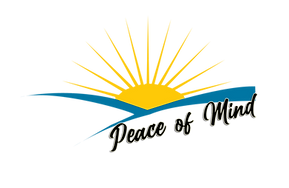
What is an Estate Plan & Why Do I Need One?
Believe it or not, you do have an estate. In fact, everyone does. Your estate consists of everything you own: your car, your homestead, other real estate that you may own, your checking and saving accounts, investments, life insurance, furniture, and your personal possessions. No matter how large or how small, everyone has an estate and everyone has something in common, you can’t take it with you when you die.
When that happens—and it is a “when” and not an “if” ~ you most likely want to control how these things are given to the people or organizations that you care about the most. To ensure that your wishes are carried out as you intend, you need to provide instructions stating whom you want to receive something, what you want them to receive, and when they are to receive it. And certainly, you want it to happen with the least amount paid in legal fees, and court costs.
That is estate planning ~ it's making a plan in advance and naming whom you want to receive the things you own after you die.
However, good estate planning is much more than that. It can also:
-
Name someone who can handle your affairs if you are not able to (i.e., out of town, become ill, get into an accident, etc.)
-
Include instructions for your care if you were to become incapacitated
-
Name a guardian for your minor children
-
Provide for family members with special needs
-
Provide for loved ones who might be irresponsible with money or who may need protection from creditors or divorce
-
Provide for the transfer of your business if you were to become disabled or pass away
-
Minimize court costs and unnecessary legal fees
Did you know that if you were to become disabled and your name is on the title of your assets and you can’t conduct business due to mental or physical incapacity, only a court appointee can sign for you? The court, not your family, will control how your assets are used to care for you through a conservatorship or guardianship. It can become expensive and time-consuming, it becomes public record, and it can be difficult to end, even if you recover.
Did you know that if you die without an estate plan, in some states, if you are married and have children from a previous marriage, your spouse and children could each receive a share? That means your current spouse may receive only a fraction of your estate, which may not be enough to live on. And if you have minor children and if both parents were to die (i.e., in a car accident), the court will control their inheritance and appoint a guardian without knowing whom you would have chosen. Would you want that? Are you willing to take that chance?
And did you know that if you die without an intentional estate plan, your assets will be distributed according to the probate laws in your state. And if you ONLY have a will, your estate WILL have to go to probate, which can be costly, up to 10% of the value of your probate estate. Probate is a public proceeding, causes a lot of stress on your family and it can take up to a year or longer.
The fact is that Estate Planning is for everyone. It is not just for “retired” people, although people do tend to think about it more as they get older. But unfortunately, we can’t predict how long we will live, and illness and accidents happen to people of all ages. It's not just for “the wealthy” either. An estate plan often means more to families with modest assets because they can afford to lose the least.
Too many people don’t plan. Individuals put off creating an estate plan because they think they don’t own enough, they’re not old enough, they’re too busy, they think they have plenty of time, they think it'll cost too much, they don't understand how it works, they don’t know who can help them or they just don’t want to think about it. Then, when something happens, their families have to pick up the pieces.
Given the choice - and you do have the choice - wouldn’t you prefer these matters be handled privately by your family, not by the judicial system? Wouldn’t you prefer to control who receives what and when? And, if you have young children, wouldn’t you prefer to have a say in who will raise them if you can’t?
None of us really likes to think about our own mortality or the possibility of being unable to make decisions for ourselves. This is exactly why so many families are caught off-guard and unprepared when incapacity or death does strike. Don’t wait. You can put something in place now and change it later…which is exactly the way estate planning should be done. It’s an ongoing process, not a one-time event. Your plan should be reviewed and updated as your family and financial situations change over your lifetime.
There is just no good reason not to make it a priority. because it's not a matter of "if" it's a matter of "when" your family will need it.
It is one of the most thoughtful and considerate things you can do for yourself and for those you love.
It's Essential, It's Simple. It's Affordable. It's Peace of Mind for you and your family.
